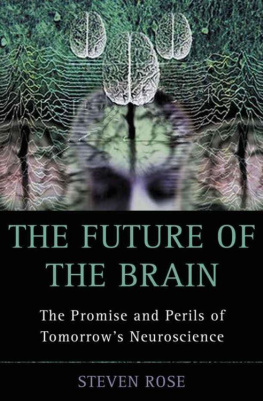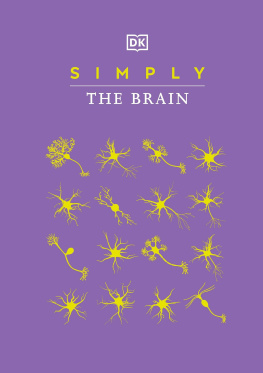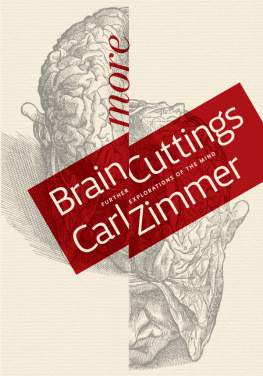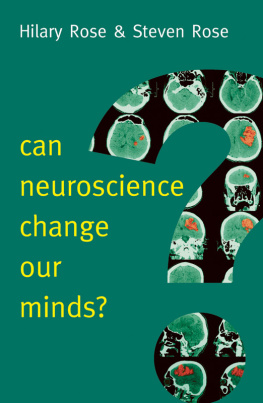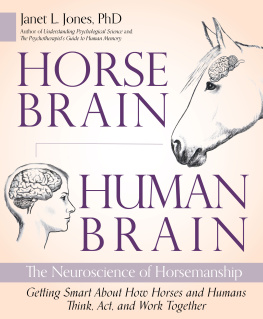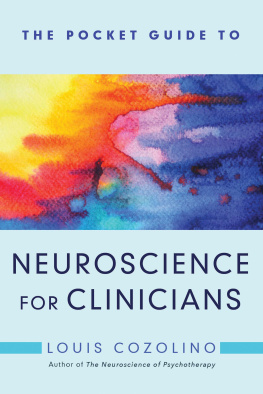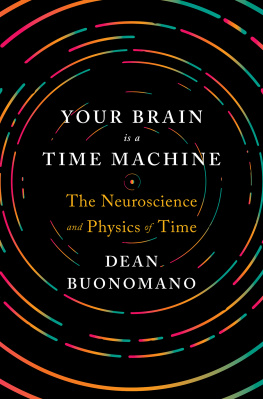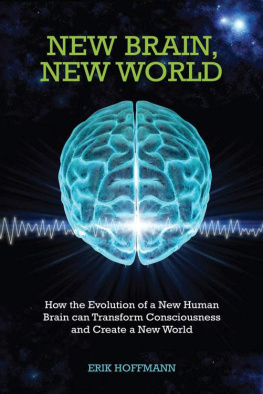THE FUTURE OF THE BRAIN
The Promise and Perils of Tomorrows Neuroscience
THE FUTURE OF THE BRAIN
The Promise and Perils of Tomorrows Neuroscience
Steven Rose


Oxford University Press, Inc., publishes works that further
Oxford Universitys objective of excellence
in research, scholarship, and education.
Oxford New York
Auckland Bangkok Buenos Aires Cape Town Chennai
Dar es Salaam Delhi Hong Kong Istanbul Karachi Kolkata
Kuala Lumpur Madrid Melbourne Mexico City Mumbai Nairobi
So Paulo Shanghai Taipei Tokyo Toronto
Copyright 2005 by Steven Rose
Published by Oxford University Press, Inc.
198 Madison Avenue, New York, New York, 10016
www.oup.com
Oxford is a registered trademark of Oxford University Press
All rights reserved. No part of this publication may be reproduced,
stored in a retrieval system, or transmitted, in any form or by any means,
electronic, mechanical, photocopying, recording, or otherwise,
without the prior permission of Oxford University Press.
Library of Congress Cataloging-in-Publication Data
Rose, Steven.
The future of the brain : the promise and perils of tomorrows
neuroscience / Steven Rose.
p. cm.
Includes bibliographical references and index.
ISBN-13: 978-0-19-515420-7 (alk. paper)
ISBN-10: 0-19-515420-7 (alk. paper)
1. BrainPopular works. 2. NeurosciencesPopular works. I. Title.
QP376.R679 2005
153dc22
2004023578
Printing number: 987654321
Printed in the United States of America
on acid-free paper
CONTENTS
Acknowledgements
My first and most enduring acknowledgement, as always, is to the sociologist Hilary Rose, companion, often co-author and as often friendly critic, for more than forty years now. I feel her sceptical eye always on me as I write. Her capacity to puncture the overblown claims of neuroscience and genetics has, I hope, diminished my excesses just as it has enriched my understanding. I do not expect she will agree with all that I have written here, but will also know that it could never have been written without her.
More than thirty years ago, early in my career as a neuroscientist, I tried to summarise my own and my disciplines understanding of the brain and its relationship to mental activity in a book called either hubristically or with paradoxical intent (take your choice) The Conscious Brain. The numbers of those claiming to be neuroscientists have increased, probably by some three orders of magnitude, in the intervening period, and my capacity to assimilate and interpret their current understandings has certainly not been able to keep pace. None the less, now towards the end of my career, I have attempted a similar task, illuminated (I hope) by richer philosophical and biological understanding and certainly modulated by greater humility towards what is not known or unknowable by my science but might be better approached by other methods and other ways of knowing. Meantime my concerns over the increasingly imperialising claims of some amongst my neuroscientist and geneticist colleagues have sharpened as neuroscience segues seamlessly into neurotechnology and what have become known as neuroethical concerns have grown. The attempt to encompass all these themes within a single volume, hopefully accessible to a wide readership, has been encouraged by Hilarys and my agent Kay McCauley, and by Will Sulkin at Cape.
The book draws on the experience and knowledge of collaborative research, conferences and discussions over the decades with many colleagues, both within the Brain and Behaviour Research Group at the Open University and the wider scholarly community, and it is impossible to do justice to all these sources, some of which I may not even be consciously aware of. As far as possible, they will find their contributions acknowledged in the reference list. However, specific chapters of the book have been read and I hope improved by Kostya Anokhin, Annette Karmiloff-Smith, Buca Mileusnic, John Parnavelas and Anya Tiunova. I am grateful for references and input from Sarah Norgate, Jim McGaugh, Susan Sara, Chris Yeo, Charles Medawar and Janice Hill and her Overload group in Edinburgh, from the books editor at Oxford University Press in New York, Fiona Stevens, and a meticulous and thoroughly enjoyable editing collaboration with Jrg Hensgen at Cape. Roger Walker made the original drawings from my incoherent scrawls. Of course, errors and interpretation are my responsibility alone.
Readers should note that my discussion of the origins of life in is reinterpreted from PS Churchland and TJ Sejnowski, The Computational Brain (MIT Press, Cambridge, Mass, 1992).
CHAPTER 1
The Promise and the Threat
BETTER BRAINS SHOUTED THE FRONT COVER OF A SPECIAL EDITION OFScientific American in 2003, and the titles of the articles inside formed a dream prospectus for the future: Ultimate self-improvement; New hope for brain repair; The quest for a smart pill; Mind-reading machines; Brain stimulators; Genes of the psyche; Taming stress. These, it seems, are the promises offered by the new brain sciences, bidding strongly to overtake genetics as the Next Big Scientific Thing. The phrases trip lightly off the tongue, or shout to us from lurid book covers. There is to be a post-human future in which tomorrows people will be what another author describes as neurochemical selves. But just what is being sold here? How might these promissory notes be cashed? Is a golden neurocentric age of human happiness beyond therapy about to dawn? So many past scientific promises from clean nuclear power to genetic engineering have turned out to be so perilously close to snake oil that one is entitled to be just a little sceptical. And if these slogans do become practical technologies, what then? What becomes of our self-conception as humans with agency, with the freedom to shape our own lives? What new powers might accrue to the state, to the military, to the pharmaceutical industry, yet further to intervene in, to control our lives?
I am a neuroscientist. That is, I study how the brain works. I do this because, like every other neuroscientist, I believe that learning how brains work in terms of the properties of its molecules, cells and systems, will also help us understand something about how minds work. This, to me, is one of the most interesting and important questions that a scientist or indeed any other searcher after truth can ask. Yet what I and my fellow neuroscientists discover provides more than mere passive knowledge of the world. Increasingly, as the Scientific American headlines suggest, this knowledge offers the prospect of sophisticated technologies for predicting, changing and controlling minds. My purpose in this book is to explore just how far the neurosciences increasing capacity to explain the brain brings in its train the power to mend, modulate and manipulate the mind.
Of course, for many neuroscientists, to ask how the brain works is equivalent to asking how the mind works, because they take almost for granted that the human mind is somehow embodied within the 1500 grams of densely packed cells and connections that constitute the brain. The opening sentences of a book are no place to prejudge that question, which has concerned not merely science but philosophy, religion and poetry for millennia, and I will come back to it for sure in due course. For now, let me continue unpacking what it means to be a neuro-scientist. In particular, I am interested in one of the most intriguing, important and mysterious aspects of how minds work: how we humans learn and remember or, to be more precise, what are the processes that occur in our brains that enable learning and memory to occur. To approach this problem, I use a variety of techniques: because non-human animal brains work very much in the same way as do our own, I am able to work with experimental animals to analyse the molecular and cellular processes that occur when they learn some new skill or task, but I also use one of the extraordinary new imaging techniques to provide a window into the human brain including my own when we are actively learning or recalling.
Next page
